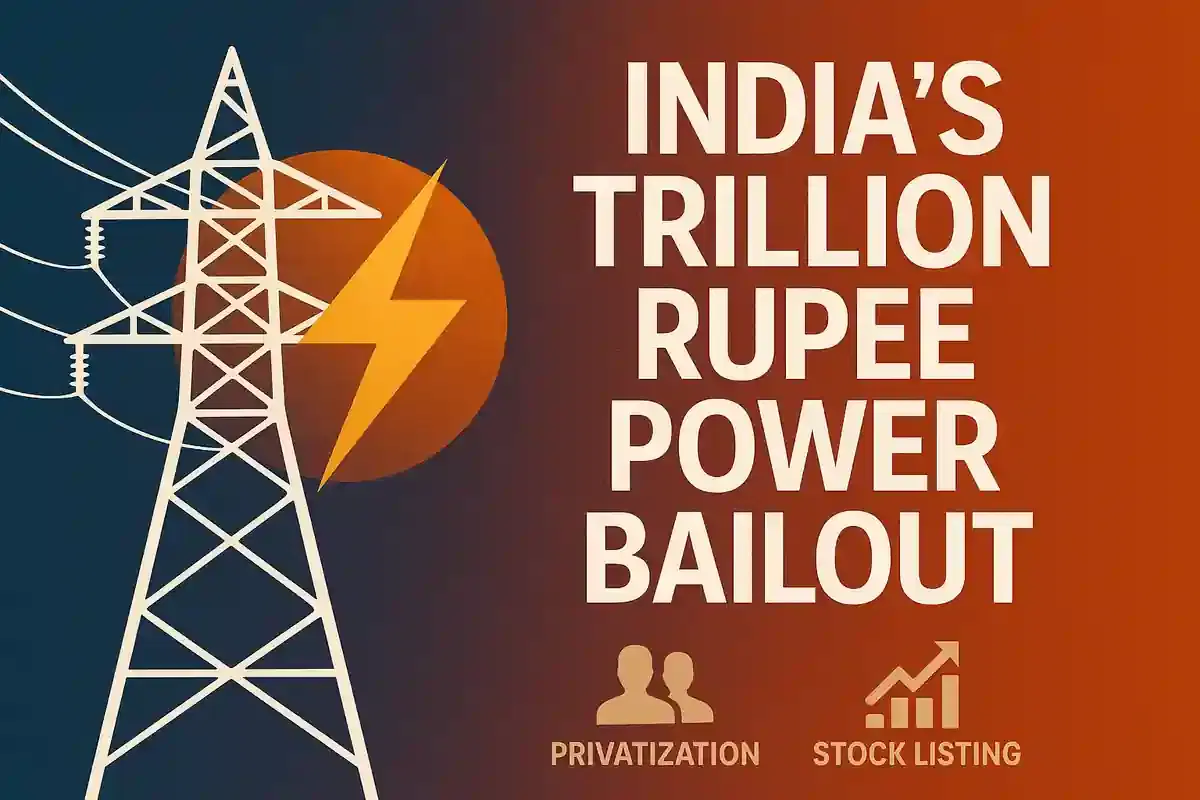India Considers Over 1 Trillion Rupee Bailout for State Power Firms with Privatization Conditions
Energy
|
29th October 2025, 10:17 AM

▶
Stocks Mentioned :
Short Description :
Detailed Coverage :
India is planning a massive financial aid package, estimated to be over 1 trillion rupees (approximately $12 billion), to support its debt-laden state-run power distribution companies.
This initiative, spearheaded by Prime Minister Narendra Modi, comes with stringent conditions. According to officials and a document from the Ministry of Power, states must either privatize their electricity utilities, cede managerial control, or ensure these entities are listed on a stock exchange. The plan is to address the chronic inefficiency plaguing these companies, which are considered a major weakness in India's energy sector.
The Ministry of Power and the Ministry of Finance are reportedly finalizing the details, with an announcement anticipated in the February budget. Under the proposal, states must ensure private companies meet at least 20% of their total power consumption and assume a portion of the retailer's debt.
States have two main options for privatization to access loans for debt repayment: either create a new company and divest 51% equity for interest-free and low-interest loans, or privatize up to 26% of an existing company's equity for similar federal loans. Alternatively, states can opt to list their utilities on a stock exchange within three years to secure low-interest loans for infrastructure.
As of March 2024, state power retailers have accumulated substantial losses of 7.08 trillion rupees and outstanding debt of 7.42 trillion rupees. Despite previous bailouts, these companies remain financially strained due to heavily subsidized tariffs.
Impact: This bailout and reform package has the potential to significantly improve the financial health and operational efficiency of state power distribution companies. It aims to attract private investment, modernize infrastructure, and stabilize the power sector, which is critical for economic growth. However, past attempts at reform have faced resistance from employees and political opposition, suggesting potential challenges ahead. The reform is expected to benefit private players like Adani Power, Reliance Power, Tata Power, CESC, and Torrent Power by opening up opportunities for stake acquisition and operational control. Rating: 8/10
Heading: Difficult Terms Explained
Bailout: Financial assistance given by a government or financial institution to a failing company or industry to prevent its collapse.
Privatise: To transfer ownership, control, or management of a business or industry from public (government) ownership to private ownership.
Equity: Ownership interest in a company, usually represented by shares of stock.
Tariffs: The price charged for a service, especially electricity or other utilities.
Retailer (in this context): A power distribution company that sells electricity directly to consumers.
Distribution Companies (Discoms): Companies responsible for distributing electricity from the grid to end-users.